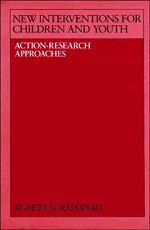2 - Families
Published online by Cambridge University Press: 05 November 2011
Summary
Families provide the fundamental interventions affecting children's development. They are the social and psychological crucible within which the child's personality is shaped and the foundation is laid for subsequent competences and problems. Families are varied in their structures and processes: internally in the way households are organized and externally in the way they are linked to others. But at a given time and place, some family forms are more prevalent, some more valued (Rapoport et al., 1977), and some more troubled (Skynner and Cleese, 1983; Minuchin, 1984).
In recent decades there have been some dramatic trends in family life within the developed countries, affecting specific family experiences and also the prevailing conception of the family as a social institution. These changes have brought new problems and have determined to some extent the kinds of social interventions which have evolved (Sussman and Steinmetz, 1986). Families are now generally smaller. There are a great many more single-parent families, and changes in the conceptions of men's and women's roles have led to a much greater participation by women in the economy, and therefore to the growth of dual-worker families. With a more permissive attitude toward sexuality and an earlier age of menarche, there has been an increase in births occurring outside marriage. The emphasis on the right to individual self-fulfillment and a more secular and facilitative attitude toward marital dissolution have resulted in a greater number of divorces.
- Type
- Chapter
- Information
- New Interventions for Children and YouthAction-Research Approaches, pp. 35 - 88Publisher: Cambridge University PressPrint publication year: 1987



